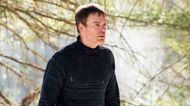For a long time, Dexter Morgan followed a twisted set of rules: only kill the guilty. Stay one step ahead. Don’t get caught. Yet, as Showtime’s most endearing maniac seems set to embark on an infamous resurrection in ‘Resurrection,’ it looks like he is bound for something far more tangled than simply returning to form. Returning to old habits isn’t the objective, and neither is redemption. The goal here is reconciliation.
After the polarizing aftermath of New Blood, which saw Morgan willingly meet his end at the hands of his son Harrison, many fans believed the story had closed its dark and messy loop. But Resurrection flips the autopsy table entirely. Set in New York City, a pulsing hive of chaos and temptation, Dexter is no longer simply trying to suppress his "Dark Passenger."
He’s being forced to examine whether the code he once lived by ever truly made him a "better" monster—or just a more careful one. This shift isn’t just cosmetic. The moral axis of Resurrection seems less concerned with who gets to die and more focused on who Dexter gets to be. And as the city throws new villains—and old regrets—into his path, the show is finally digging into a question it’s long danced around: What happens when a killer questions the very rules that justified his killing?
New York, new game, new questions, and Dexter

Forget Miami’s sweltering beaches or Iron Lake’s icy quiet. New York City is a moral minefield, and for a man like Dexter, that changes everything. With the streets teeming with predators, victims, cops, and secrets tucked into every alley, this isn’t just a location shift—it’s a psychological one. The clean surgical precision of his earlier hits no longer fits the chaos of his environment. Dexter is being confronted with killers unlike any he’s faced before—some more brutal, others more philosophical.
Enter the likes of Peter Dinklage’s enigmatic Leon Prater and his macabre "murder club" of fellow serial killers, each with their own warped ideologies. For the first time, he isn’t the apex predator. He’s just one among many—a situation that forces him to reevaluate whether his so-called justice ever actually set him apart. Survival might still depend on the code, but faith in that code? That’s cracking fast.
Fatherhood, failure, and the ghosts that linger

His journey has always been haunted by victims, Harry, and the hollow ache of trying to feel "normal." But Resurrection places a fresh specter at the center: fatherhood. His desperate search for Harrison, now out there in a world he no longer understands, isn’t just a plot device—it’s the fuel behind his transformation.
What kind of example does a killer set for his son when he isn’t sure he believes in his own rules anymore? And the ghosts? They’re louder than ever. Harry Morgan returns, not as a guiding conscience but as a reminder of how flawed that conscience was.
The lines between mentor and manipulator blur further with every flashback, every internal argument. For the first time, he isn’t just second-guessing himself—he might finally be learning who he is without the code. Whether that leads to something redemptive or far darker remains to be seen. But one thing is certain: the compass has been shaken loose from its hinges. And it’s finally pointing somewhere new.
